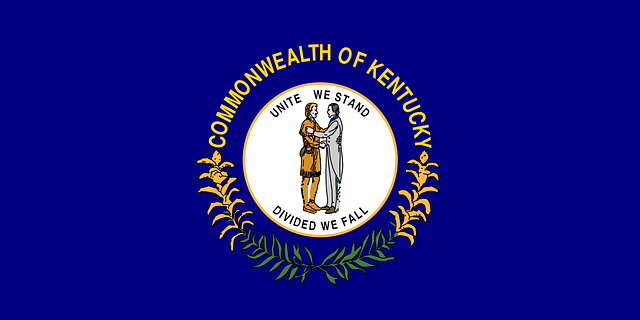Share This Article:

Case File
In Kentucky, after a change in workers' compensation coverage, which insurer is responsible for paying workers' compensation benefits? According to the Kentucky Supreme Court, timing is everything. Simply Research subscribers have access to the full text of the decision.
Case
Encova Mutual Insurance Group v. Hall, No. 2024-SC-0547-WC (Ky. 10/23/25)
What Happened?
After retiring from full-time work, a Kentucky high school teacher continued to work as a substitute. After he retired from substitute work, the teacher filed a Form 102 workers' compensation application, alleging that he developed mesothelioma due to asbestos exposure during his employment at the school.
The teacher identified his last date of exposure as "gradual," stemming from his full-time employment from 1976 to 2003. Eventually, an administrative law judge dismissed the teacher's claim, concluding that he was barred by the statute of limitations after finding that all asbestos was removed from the school in 1990.
The Workers' Compensation Board reversed, concluding that the teacher had been exposed to asbestos until 2003. The case eventually went to the Kentucky Supreme Court, which affirmed the 2003 date and remanded to the ALJ. The ALJ ultimately settled on a last date of exposure of 2014, based on when the teacher's substitute duties came to an end.
Following the ALJ's ruling, a dispute ensued over who the school district's insurer was for purposes of the teacher's claim, Kentucky Employers' Mutual Insurance arguing that Encova was the carrier on the risk at the time of the teacher's last date of exposure.
The ALJ refused to certify coverage, leaving KEMI as the responsible carrier. KEMI appealed to the Court of Appeals, which held that Kentucky Supreme Court precedent directed that ALJs have authority to decide whether an employer's workers' compensation carrier covered the employer at the time of the employee's injury and determine an insurance company's rights.
Encova appealed to the Kentucky Supreme Court.
Rule of Law
Under Kentucky's "last exposure rule," the existence of an earlier exposure that caused a gradual injury does not relieve a latter insurer of responsibility when the injured worker continues working under a different carrier. If the injury was sustained during a carrier's coverage period, the ALJ is not precluding from assigning liability to ensure the proper carrier is responsible.
What the Kentucky Supreme Court Said
According to the Kentucky Supreme Court, once the ALJ found that the teacher's last injurious exposure occurred during the school district's period of coverage with Encova, statutory liability followed.
"Even though Encova had not yet been joined, its policy came into effect upon that finding and Encova became legally bound," the court wrote.
Encova argued that notice was constitutionally deficient, by the Kentucky Supreme Court pointed to state law directing that an employer's knowledge of an injury establishes knowledge on the part of its insurer.
"Under this statutory regime, an insurer cannot claim surprise when its insured was timely notified of the injury and had participated throughout the proceedings," the court wrote.
The court found that the Workers' Compensation Act bound Encova by operation of law once the last date of exposure was finally adjudicated.
Addressing Encova's argument that KEMIA did not timely move for carrier certification, the Kentucky Supreme Court explained that there was not fixed statutory or regulatory deadline for when a party must move to certify a new carrier after a change in exposure date and, moreover, "nothing in the statute or case law supports the notion that only KEMI bore the burden to move for certification."
The Kentucky Supreme Court determined that the board's refusal to certify coverage contradicted the law.
Verdict: The court affirmed the Court of Appeals ruling and remanded the case to the Workers' Compensation Board.
Takeaway
In Kentucky, an insurer's liability under the Workers' Compensation Act is not conditioned on notice, timely joinder, or participation to be bound by an injured worker's award. Rather, it arises from the existence of an employment relationship, a valid insurance policy, and the timing of exposure.
AI california case file caselaw case management case management focus claims compensability compliance compliance corner courts covid do you know the rule employers exclusive remedy florida glossary check Healthcare hr homeroom insurance insurers iowa leadership medical NCCI new jersey new york ohio pennsylvania roadmap Safety safety at work state info tech technology violence WDYT west virginia what do you think women's history women's history month workers' comp 101 workers' recovery Workplace Safety Workplace Violence
Read Also
About The Author
About The Author
-
Frank Ferreri
Frank Ferreri, M.A., J.D. covers workers' compensation legal issues. He has published books, articles, and other material on multiple areas of employment, insurance, and disability law. Frank received his master's degree from the University of South Florida and juris doctor from the University of Florida Levin College of Law. Frank encourages everyone to consider helping out the Kind Souls Foundation and Kids' Chance of America.
More by This Author
Read More
- Mar 01, 2026
- Chris Parker
- Mar 01, 2026
- Frank Ferreri
- Feb 28, 2026
- Chriss Swaney
- Feb 28, 2026
- Chris Parker
- Feb 28, 2026
- Chris Parker
- Feb 27, 2026
- Liz Carey




